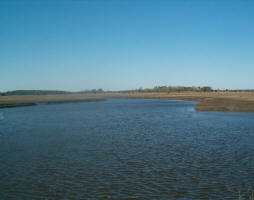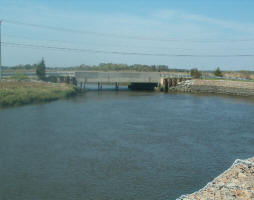 Lebanon: Reduced rain window threatens water crunch
Lebanon: Reduced rain window threatens water crunch
Lebanon
faces great changes if average temperatures rise 2-4 degrees Celsius
over the next 100 years, as most climate change models forecast.
According to Wael Hmaidan, executive director of IndyACT, The League of
Independent Activists, climate change in the Middle East will affect
Lebanon first. “The distribution of rain has changed; the snow density
is decreasing and forest fires are spreading,” he said.
Lebanon’s average annual rainfall exceeds 800 million cubic metres
(mcm), helping to sustain more than 2,000 springs during the
seven-month dry season, the envy of more arid regional countries such
as Iraq and Jordan.
But this is changing. “Twenty years ago we used to reckon on 80-90
rainy days a year in Lebanon. Today we forecast 70 rainy days,” said
Bassem Jaber, an expert on water from the Implementation of Technical
Tools for Water Management (MOTGE) at the Lebanese Ministry of Energy
and Water.
It is not the amount of rain that is changing, said Jaber, but the
period in which it falls: “With the same amount of rain, but in a
shorter period of time, it cannot seep into the soil. Instead it runs
along the ground and washes into the ocean where it is lost. On its way
it causes soil erosion, landslides and flash floods. This eventually
leads to desertification.”
This change in Lebanon’s weather could, according to IndyACT’s Hmaidan,
spell disaster for the country: “Lebanon’s only natural resources are
its fair weather, forests and water. The country’s economy is based on
tourism, which depends on these resources. If they go, so will
Lebanon’s economy.”
The
government has plans to build up to 28 surface and subsurface dams over
the next 10 years, aiming to capture up to 900 mcm of fresh water.
At an estimated cost of US$2.5bn to $3bn, the plan has been criticized
by some activists as too costly and damaging to wildlife. IndyAct is
working on an alternative plan focused on better use of current
resources.
But Fadi Comair, director-general of Hydraulic and Electric Resources
at the Ministry of Energy and Water, insists dams may be the only
answer to Lebanon’s climate change problem.
| Contact information |
Irin News - © IRIN 2009.
|
|---|---|
| News type | Inbrief |
| File link |
http://www.irinnews.org/Report.aspx?ReportId=85698 |
| Source of information | Irin News - © IRIN 2009. |
| Keyword(s) | water crunch, drought, climate change, rain, desertification |
| Subject(s) | DRINKING WATER , FINANCE-ECONOMY , HYDRAULICS - HYDROLOGY , POLICY-WATER POLICY AND WATER MANAGEMENT , RISKS AND CLIMATOLOGY , WATER DEMAND |
| Relation | http://www.emwis.net/countries/fol749974/country958156 |
| Geographical coverage | Lebanon |
| News date | 13/08/2009 |
| Working language(s) | ENGLISH |
 you are not logged in
you are not logged in





